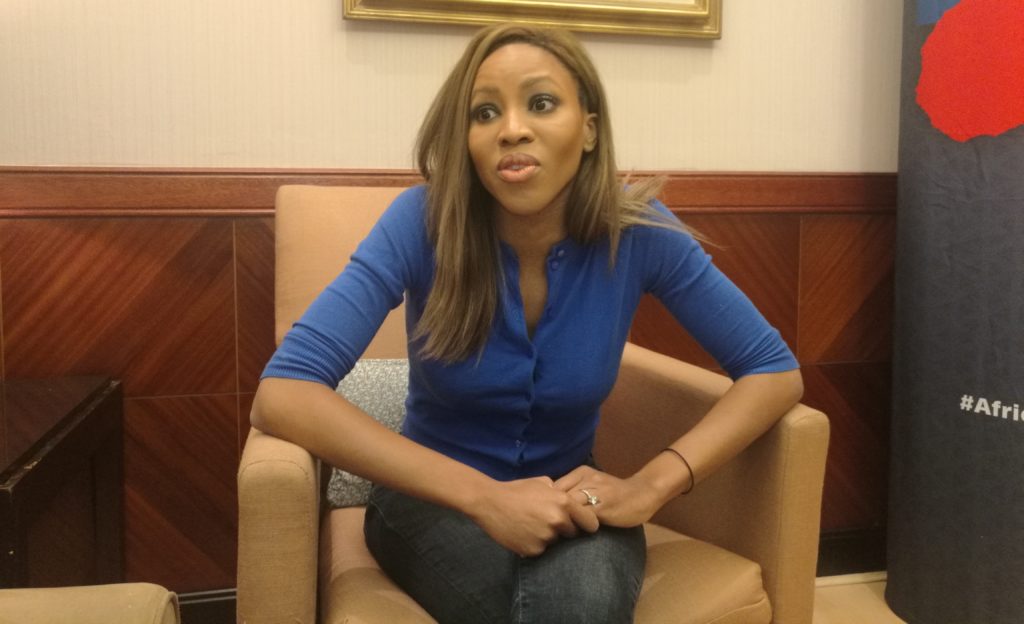Like many zero-to-hero stories, the rise of Zain Asher from a victim of war to an international star as CNN anchor is inter-twined with twists and turns that conspire with fate to change fortunes.
Born 33 years ago of Igbo parents in Nigeria, Asher had no more than education to bank on for a better life, until the Biafra war broke out and forced her parents out of Nigeria to London, Britain. What looked like a disaster would later turn into an advantage that exposed the young but enthusiastic girl to better opportunities that eventually hoisted her to the top of the world.
Asher currently anchors the popular Marketplace Africa programme on CNN, one of the prestigious positions at the global news house so far held by very few Africans, who include Isha Sesay, from Sierra Leone and Zain Verjee from Kenya. Asher seems to be following in the footsteps of Isha, who also left Sierra Leone for studies in London, only to find her grove in TV there.
“Success doesn’t depend necessarily on where you were born,” says Asher, who talks so fast (and eloquently) that you have to struggle to catch up, perhaps a trait she’s learnt from being a reporter and news anchor, where you are required to say more in less time.
I caught up with Asher Mid October in Johannesburg, South Africa, during the CNN Multichoice Africa Journalist of the Year Awards. Being the co-host of the event with SuperSport football analyst Robert Marawa, she looked stunning and was clearly one of the ladies to watch – and she knew it. So her talk and actions were measured.

She says getting into TV was, actually, not in her dreams at all. “It was accidental,” she said, without giving much detail. “I always wanted to be a print journalist.
Since Zain Ejiofor Asher, the younger sister of Nollywood actor Chiwetel Ejiofor, had a passion for reading, she studied French and Spanish alongside English to be able read more literature. Consequently, she developed an interest in writing so she could be read and highlight ‘positive stories from Africa’. She even reported for newspapers in Mexico, before joining News 12 Brooklyn TV.
SEE ALSO >> Journalist takes on media houses on sackings
But then, as she says, a CNN executive discovered her, opening the door for her to the world’s biggest television station. Before taking up Marketplace Africa programme, Asher co-anchored CNN Newsroom on the American edition. She joined CNN in 2013 as a business correspondent based in New York City. In addition to financial reporting for CNN, she also had a monthly column in Money Magazine.
For Asher, her rise has to do with more than just the good looks, eloquence and voice. As a villager in Nigeria would say in the signature West African pidgin, Asher “has read book!”
She graduated from Keble College, Oxford University in 2005 with a degree in French and Spanish and a year later from Columbia University’s Graduate School of Journalism in 2006. That has paid off.
Yet with all these credentials to her name, Asher comes off as a humble lady who has worked hard to break the glass ceiling in journalism, a career seen to be dominated by men. “The CNN newsroom is not a man’s world,” she says. “And that should apply to many media houses across the world. My experience at CNN has confirmed a diversity in the newsroom that reflects its different interests and audience.”
She said the CNN International Desk represents different backgrounds and cultures as well as geographical orientations. “Fortunately, CNN takes diversity seriously – white, black, male female and even religion. A modern newsroom must reflect that both on camera and behind the camera.”
She spoke a day after various media personalities debated the voice of women in the newsroom ahead of the CNN Multichoice Africa journalism awards. At the forum, anchored by a speech from former South African First Lady Graca Machel, twisted perceptions emerged about women in journalism, with some speakers feeling the so-called weaker gender focuses on softer issues of journalism, which mutes their voice.
Women in the newsroom
But Asher, like the many ladies at the forum, argues that gender lines have been blurred. “Look at Christian Amapour (CNN international correspondent). She is one of the toughest journalists in the world and handles the most difficult stories and even covers war,” says Asher.
On this year’s CNN Multichoice African Journalists Awards, she said submissions were getting better every year, making the event a great motivator to journalists across Africa. “You can see journalists are being more tenacious and trying very hard to do great stories,” she observed. “They work in difficult circumstances and CNN is happy to recognise their efforts.”
Asha Mwilu was declared the CNN Multichoice Africa Journalist of the year, for her investigative series on insecurity in Kenya’s Mandera region, a hot bed of ethnic clashes and terror attacks on the border with Somalia.
Asher sees a bright future for African journalism and for herself as well. As she flew back to Atlanta, she left behind a continent at odds with itself, where corruption, insecurity and poverty are ravaging. “Education is very important,” she says. “It’s the ticket to a bright future for Africa and its people.”

